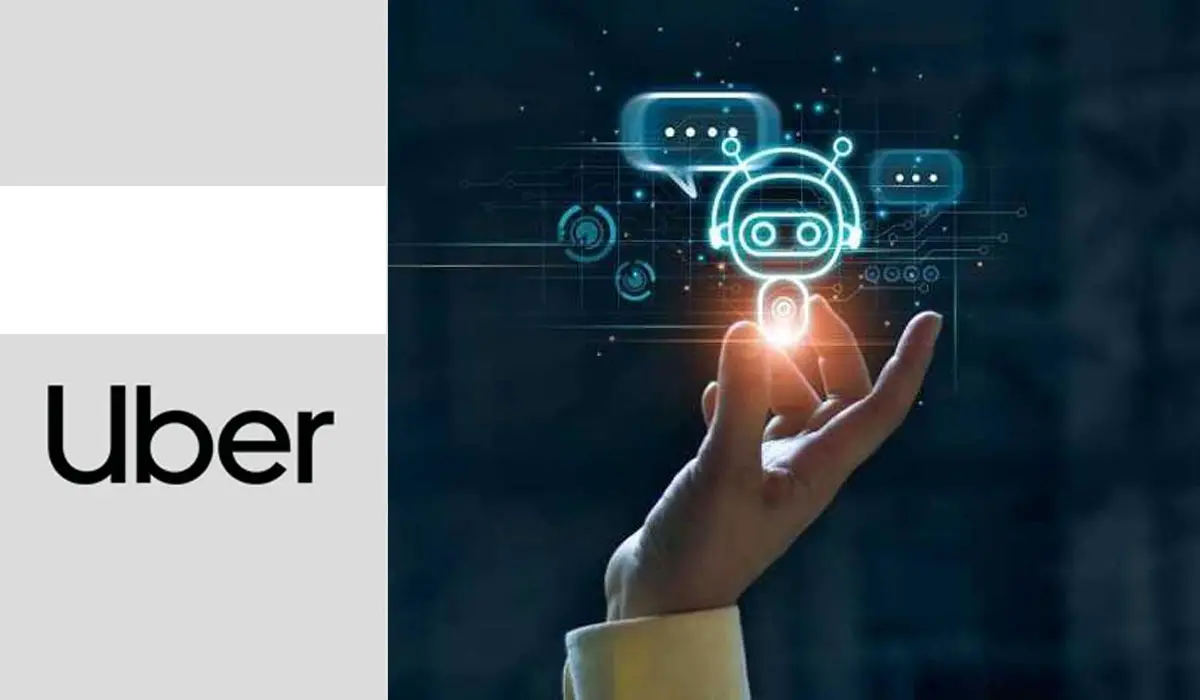In the dynamic realm of Generative Artificial Intelligence (AI), where virtually every industry is embracing the transformative power of AI, Uber, the pioneering ride-sharing company, has unveiled its foray into the world of AI with the development of an innovative AI chatbot. This technological advancement is poised to revolutionize numerous facets of Uber’s operations, spanning from customer service to marketing, thereby elevating the overall user experience to unprecedented heights. As the momentum of AI adoption continues to surge, customer service, a domain ripe for AI integration, stands on the threshold of a monumental transformation. In this article, we delve into the intricate details of Uber’s AI chatbot and explore the factors that underpin its adoption of Generative AI.
The Evolution of Uber AI Chatbot
Uber’s AI chatbot, currently in its developmental phase, is set to be seamlessly integrated into the existing app infrastructure. While comprehensive details regarding the functionalities and capabilities of Uber AI are yet to be unveiled, the company has been dedicating substantial resources to its AI endeavors for a considerable span of time. This endeavor encompasses a plethora of algorithms designed to optimize crucial aspects of Uber’s operations, encompassing tasks such as efficient car and courier matching, precise distance calculations, and an array of other functions aimed at enhancing user experience.
Remarkably, the influence of AI on Uber’s operations is already tangible, with the company achieving a historic milestone by recording a profit for the first time in Q2 2023. This feat can be attributed to AI’s pivotal role in fostering robust engagement among drivers and couriers, thereby propelling revenue to an impressive $15.1 billion during the quarter. This surge is further substantiated by a notable 22% growth in Uber’s trips, attributed to the remarkable expansion of both mobility and delivery services. However, despite these remarkable strides, projections suggest that the company’s revenue might fall short of expectations.
Empowering Uber’s Success: AI-Driven Optimization
At the heart of Uber’s triumphant narrative lies the strategic implementation of AI to optimize routes and predict surge pricing. This role has been pivotal in bolstering Uber’s success trajectory, effectively minimizing wait times for users. The integration of AI heralds a future where users will be spared the inconvenience of prolonged waiting periods, thereby significantly enhancing their overall experience with the app. As AI evolves, it is poised to augment its capabilities, ushering in a new era of sophisticated interactions and unparalleled user value.
Unveiling the Why: Uber’s Adoption of Generative AI
Uber’s decision to embrace Generative AI is firmly rooted in the overarching industry trend of harnessing AI’s transformative potential. The concept of Generative AI stands as a potent tool to amplify the Uber Services experience, and this is not the first instance where the company has explored AI integration. The dedicated Uber AI division, responsible for AI’s development, underscores the company’s commitment to innovation and technological advancement.
As the AI landscape continues to evolve, Uber faces competition from industry peers such as DoorDash Inc. and Instacart, both venturing into the realm of AI chatbots. Drawing inspiration from OpenAI’s GPT model, these entities seek to offer users enhanced experiences, from food exploration to culinary queries. Uber’s integration of AI has been instrumental in fueling a remarkable 16% Year-over-Year (YoY) growth, translating to a staggering $33.6 billion in Q2 revenue. This impressive financial performance is complemented by a 14% YoY revenue growth, culminating in a net income of $394 million.
However, with integration comes inherent risks, as illustrated by past instances such as Snapchat’s AI integration, which failed to yield substantial value or significantly enhance the user experience. Despite these potential pitfalls, Uber’s strategic utilization of AI promises operational cost efficiencies, redirecting resources towards pioneering technological innovations and algorithmic advancements.
Carving a Path to the Future
In this paradigm shift marked by AI integration, Uber’s journey towards an AI-driven future is both promising and fraught with challenges. As the company continues to refine its AI chatbot, it aligns itself with an ever-expanding roster of AI-powered apps, each striving to augment user experiences in novel ways. Notably, industry titans like Samsung and Apple are also actively venturing into generative AI models, a trend that promises to further galvanize the market.
In a final reflection, the introduction of Uber AI serves as a testament to the transformative capacity of language tools in redefining customer service, marketing, and automation. The AI chatbot’s integration augments the Uber app’s utility by providing real-time assistance and support, thereby cementing its position as a pioneering force within the realm of AI-powered innovations.
Frequently Asked Questions (FAQs)
What exactly is Uber AI chatbot?
Uber AI chatbot is an innovative application of Generative Artificial Intelligence developed by Uber to enhance various aspects of its operations, including customer service and marketing.
How does Uber’s AI chatbot optimize routes and predict surge pricing?
Uber’s AI chatbot employs advanced algorithms to optimize routes and predict surge pricing, resulting in minimized wait times and an improved user experience.
What sets Uber’s approach to AI apart from its competitors?
Uber’s dedicated AI division and its strategic adoption of AI technology distinguish it from competitors, ensuring cutting-edge innovation and enhanced user value.
Can Uber’s AI chatbot truly revolutionize customer service?
Yes, by offering real-time assistance, personalized interactions, and efficient query handling, Uber’s AI chatbot has the potential to revolutionize customer service within the ride-sharing industry.
How might Uber’s AI integration impact its profitability?
Integrating AI could potentially lower operational costs and open avenues for new technological developments, contributing to improved profitability and growth.

